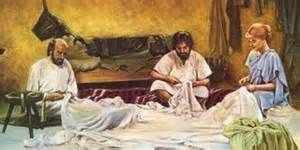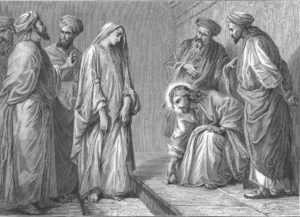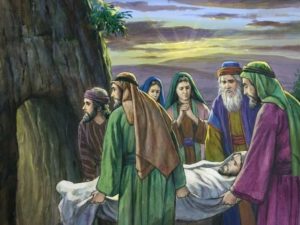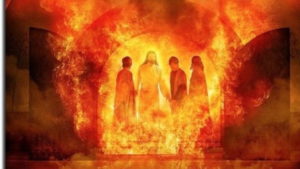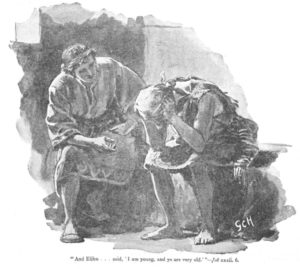
Todays reading: Revelation 22:16
“I, Jesus, have sent my angel to testify to you about these things for the churches. I am the root and the descendant of David, the bright morning star.”
These are the final words that are spoken by Jesus in the bible. This completely wraps up the entirety of the biblical story. He is the beginning of the story and the final chapter in the eternal saga that has been written and conveyed throughout centuries and millennia in the Jewish and Christian journey. He makes a strong case of the completion of the Messiah chronicles. In the Jewish faith, Jesus shows that he is before the formation of the promise with Abraham – David’s root. He is also showing that he is the fulfillment of the promise from David – that his throne will be eternal. But with for everyone he points us to something further – the beginning of journey into the light – The Bright Morning Star.
The Bright Morning Star has a lot of deep significance and power that is sometimes hard to fathom or imagine. In our current society when we think of The Bright Morning Star we can think of a faint light on the horizon. But in the time of Christ, there were not any of the luxuries that we have been granted. In the time of Christ, the lack of everyday amenities was an understatement. People didn’t have food daily. People were not able to have adequate drinking water at their disposal. Life was a gift that was relevant and cherished daily. Sickness and death were constants. They didn’t have oil for light in the day or evening. When it is dark it is dark, completely void of light. When you see the Morning Star, you know that dawn is close at hand.
When we look at the Morning Star in Christ time, it is something that would be easily seen with the eye, absent all of the ambient light from other city and towns. It would be the first light of the day, before the dawn. The actual Morning Star that is on the horizon is the planet Venus. It rises on the horizon several minutes before the sun breaks the dawn. It is one that if you are not expecting it or know where to look you would not be able to observe the beauty of the star. It breaks the dark in such a way that all of the other heavenly bodies are noticed. But it is before the radiance and heat of the sun are felt. So Christ, himself describes himself in this manner, not by coincidence, but by great intention. He sums up how he has, will, and continues to present himself to us: He will be gentle; We have to take notice; and Know which light to focus on.
Matthew 11: 28-30 28 Come to me, all who labor and are heavy laden, and I will give you rest. 29 Take my yoke upon you, and learn from me, for I am gentle and lowly in heart, and you will find rest for your souls. 30 For my yoke is easy, and my burden is light.”
The Morning Star is one that comes in gently with a refreshing newness. Each daily it comes before the dawn. It is gentle and allows you to prepare for the brightness and harsh light from the sun. Jesus is gentle to us as He deals with us daily. If we allow, he will be able to give us a gentle transition into daily life. He will allow us to be eased into the peace of him in the midst of pain, hurt, destruction and malice.
We to take notice of Him. He is gentle, but he will not force himself on to us. It is us who will have to notice him. He is not hiding. He is in the same place everyday, without fail. There is not a time that the Morning Star, has not proceeded to the sun, since the creation of the Solar System. The same is for Christ; he is in the same place all the time. We have to take notice or show others how to take notice.
A couple of days ago, I had a a conversation with a friend about books that have changed my life. The friend that I was speaking with shared some very insightful thoughts. He informed me that in his previous life, many situations caused him to reevaluate his life and purpose. He said “ When I was in that life, I was not aware of the things I was doing. But then I woke up and saw the things that I needed to do to change. I did not know I was not awake to life, and now, I’m awake.” It takes the experienced believer to show the novice how to see and look for the Morning Star.
As mentioned earlier, the celestial sky has hundreds and thousands of lights that can distract us from focusing on the Morning Star. The key is to know how where to look, know what to look for, and have someone show you how for the Morning Star. The best thing for us is Jesus has already provided all of the needs to access Him. We have a direct connection and communication with him. He is always accessible. We have to take that leap and know that he is waiting with open arms.
Heavenly Father, Thank you for the Morning Star. Amen



